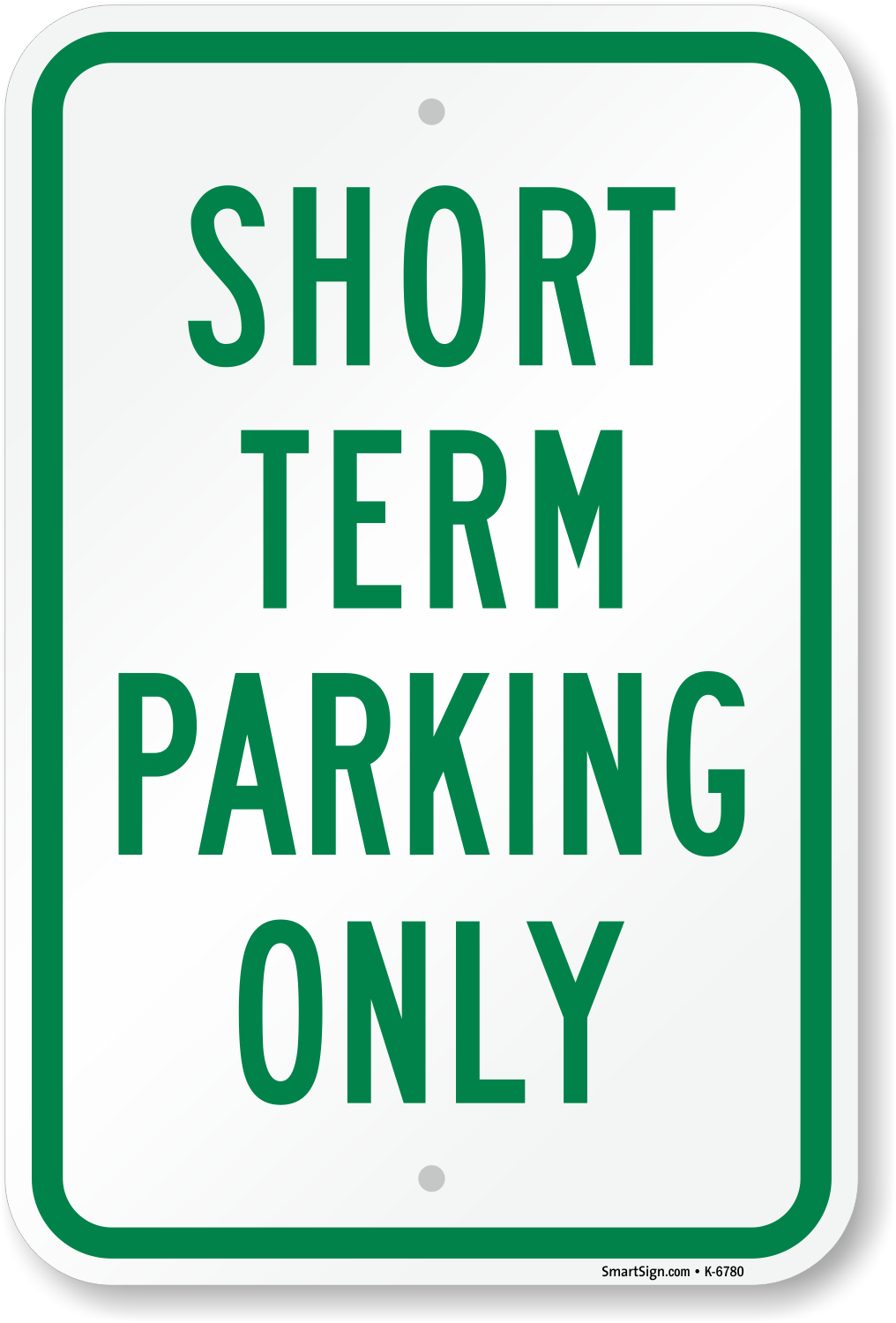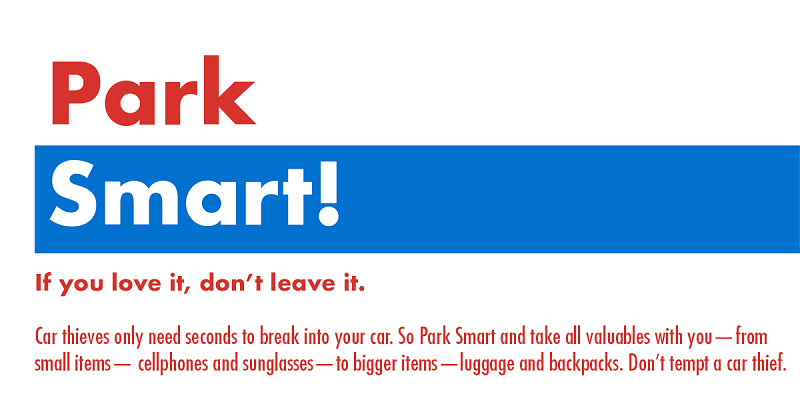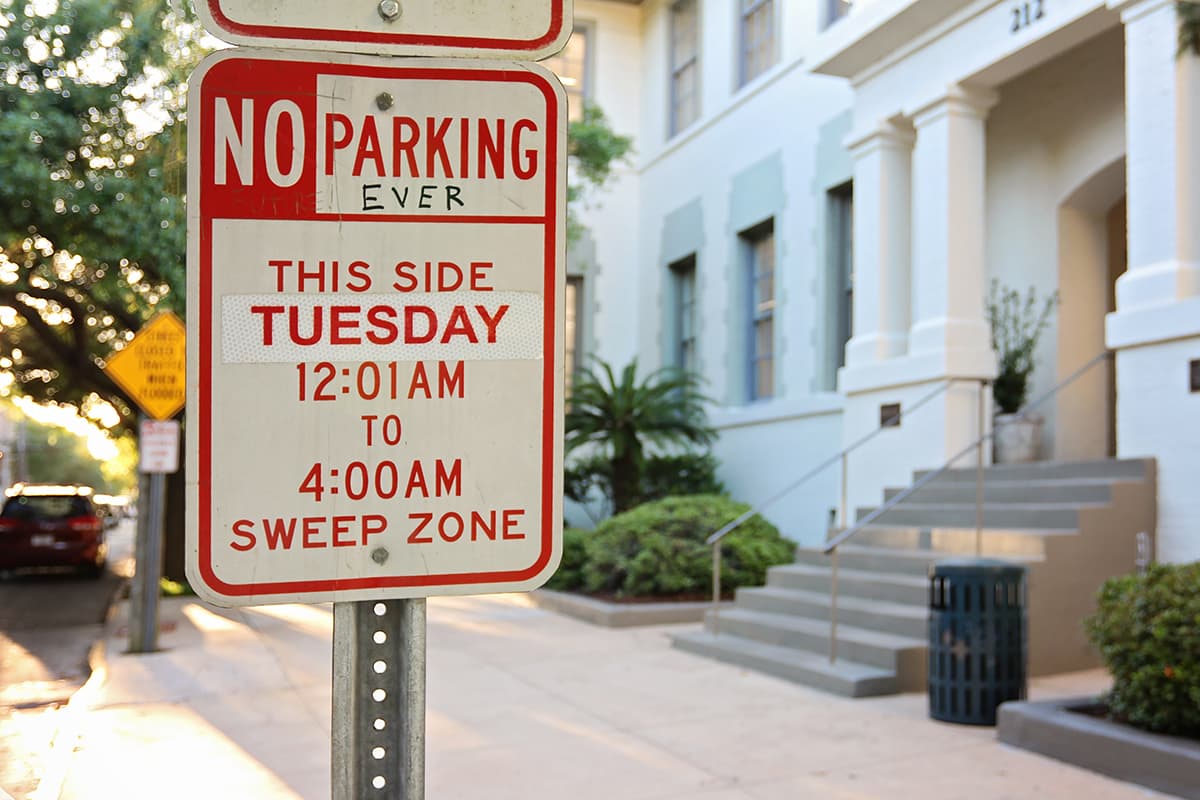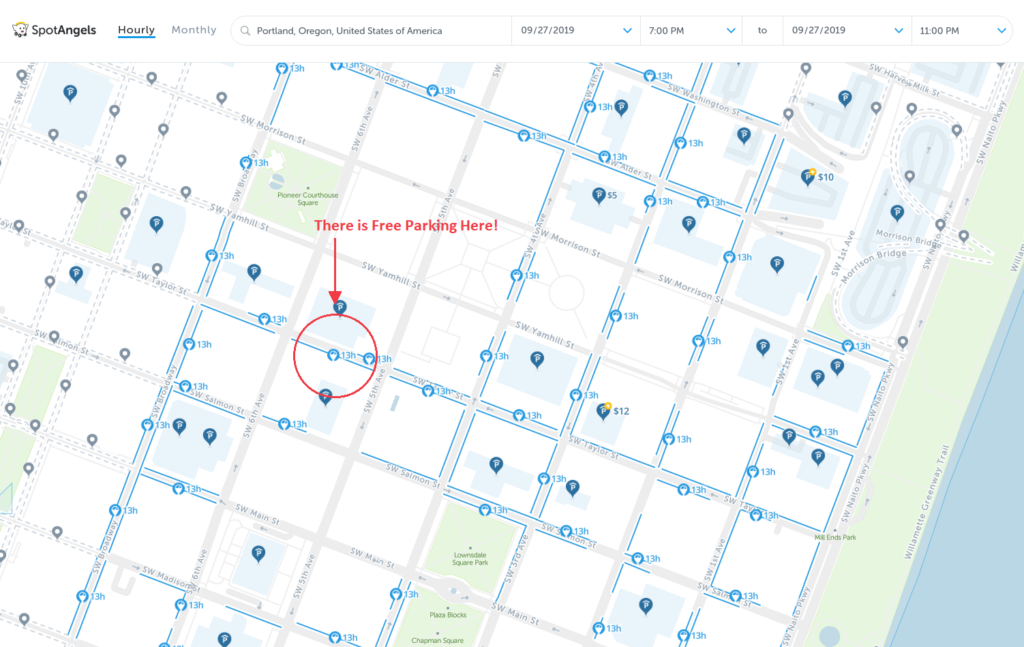Park Smart, Park Short: Your Guide to Short-Term Parking

Ever found yourself in a city, ready to explore, but completely stumped by the parking situation? Short-term parking can be a lifesaver, whether you’re popping into a store for a quick errand, grabbing lunch with friends, or catching a show. But, navigating the world of short-term parking can feel like trying to find a parking spot in a packed city – confusing, stressful, and maybe even a little pricey.
Fear not, intrepid traveler! This guide is your one-stop shop for all things short-term parking. We’re going to break down the different options, discuss the pros and cons of each, and even give you some tips for saving money and keeping your stress levels in check.
Related Articles: Park Smart, Park Short: Your Guide to Short-Term Parking
- Arizona Parking Stress: A Phoenix Rising From The Asphalt Jungle
- Parking In Dover Downtown: Don’t Let It Drive You Crazy!
- Navigating Arizona’s Handicapped Parking: A Comprehensive Guide For Drivers And Businesses
- Navigating The Skies And Your Wallet: A Comprehensive Guide To California Airport Parking Options
- Comparison Of Public Vs. Private Parking Options In ArizonaTitle
Let’s park it, shall we?
Understanding the Short-Term Parking Landscape
Short-term parking is, as the name suggests, parking for a limited duration. It’s perfect for those quick trips where you don’t need to leave your car parked for hours on end. Think of it as a parking pit stop, a temporary haven for your vehicle while you’re out and about.
But, just like any good pit stop, there are different options to choose from, each with its own unique set of advantages and disadvantages. Let’s take a closer look:
1. Street Parking: The Wild West of Parking
Street parking is the ultimate free-for-all of the parking world. It’s readily available, often free (or very affordable), and can be a lifesaver when you’re in a pinch. But, it’s also a bit of a gamble.
Pros:
- Free or Low-Cost: In many areas, street parking is free or costs a pittance.
- Convenience: You can often find a spot right near your destination.
- Flexibility: You’re not tied down to a specific time slot.

Cons:

- Availability: Finding a spot can be like finding a needle in a haystack, especially in busy areas.
- Safety: Street parking can be a bit dicey, especially in high-crime areas.
- Restrictions: Street parking often comes with limitations like time limits, permit requirements, or even parking bans during certain hours.

2. Garages and Lots: The Safe Haven of Parking
Garages and lots offer a more structured, secure, and often more convenient parking experience. They’re perfect for those who want to park with peace of mind, knowing their car is safe and sound.
Pros:
- Security: Garages and lots often have security personnel and surveillance systems, offering increased peace of mind.
- Convenience: They’re usually located close to popular destinations and often have amenities like restrooms and vending machines.
- Weather Protection: Your car is shielded from the elements, keeping it safe from rain, snow, and sun.
Cons:
- Cost: Garages and lots can be significantly more expensive than street parking.
- Limited Availability: Especially in popular areas, spots can be limited, and you might have to walk a bit to reach your destination.
3. Valet Parking: The VIP Treatment
Valet parking is the ultimate luxury option. Just pull up, hand your keys to a friendly valet, and they’ll take care of everything. It’s perfect for those who want to avoid the hassle of parking and arrive at their destination feeling relaxed and ready to go.
Pros:
- Convenience: You don’t have to worry about finding a spot or navigating tight parking spaces.
- Luxury: It’s a great way to add a touch of class to your outing.
Cons:
- Cost: Valet parking is the most expensive option, often costing double or even triple the price of other parking options.
- Time: It can take a bit longer to retrieve your car than with other parking options, especially during peak hours.
4. Hotel Parking: The Overnight Option
If you’re staying at a hotel, you might be able to take advantage of their short-term parking options. It’s a great way to park your car securely and conveniently while you’re exploring the city.
Pros:
- Convenience: It’s often located right at your hotel, eliminating the need for extra walking.
- Security: Hotels usually have security personnel and surveillance systems in place.
Cons:
- Cost: Hotel parking can be pricey, especially in popular tourist destinations.
- Limited Availability: Spots can be limited, especially during peak season.
5. Airport Parking: The Travel Hub
Airports are notorious for their high parking costs, but they also offer a variety of short-term parking options for those who need to park their car while they’re away.
Pros:
- Convenience: Located right at the airport, making it easy to get to and from your flight.
- Security: Airports have strict security measures in place, ensuring the safety of your vehicle.
Cons:
- Cost: Airport parking can be extremely expensive, especially for long-term stays.
- Limited Availability: Spots can be limited, especially during peak travel times.
6. Ride-Sharing and Public Transportation: The Car-Free Option
If you’re looking to avoid parking altogether, ride-sharing and public transportation are excellent alternatives. They offer a convenient and often affordable way to get around without the hassle of parking.
Pros:
- Convenience: Ride-sharing apps and public transportation systems are readily available in most cities.
- Cost-Effective: Ride-sharing can be cheaper than parking, especially in cities with high parking costs.
- Environmentally Friendly: Using public transportation or ride-sharing is a more sustainable way to travel.
Cons:
- Limited Flexibility: Ride-sharing and public transportation can be less flexible than driving your own car.
- Crowds: Public transportation can be crowded, especially during peak hours.
7. Park and Ride: The Commuter’s Choice
Park and ride facilities offer a convenient way to park your car and then hop on public transportation to reach your destination. They’re a popular choice for commuters who want to avoid the stress of driving and parking in the city.
Pros:
- Affordable: Park and ride facilities are often cheaper than parking in the city center.
- Convenient: They’re usually located near major transportation hubs, making it easy to connect to public transportation.
Cons:
- Limited Availability: Spots can be limited, especially during peak commuting hours.
- Travel Time: It takes longer to reach your destination than if you were driving yourself.
Navigating the Parking Maze: Tips and Tricks for Short-Term Parking Success
Now that you’ve got a grasp of the different short-term parking options, let’s dive into some practical tips and tricks to help you park smart and save money:
1. Plan Ahead, Park Smart
- Check for parking options before you go: Before you even leave the house, take a few minutes to research parking options in the area you’re planning to visit. Websites like SpotHero and ParkMobile can help you find the best deals and compare prices.
- Consider off-peak parking: If possible, try to park during off-peak hours, such as early mornings or late evenings. You’ll often find better deals and more available parking spots.
- Look for free parking options: Don’t be afraid to explore your options! Many businesses offer free parking to customers, and some cities have free parking areas.
2. Embrace the Digital Age of Parking
- Use parking apps: Apps like SpotHero and ParkMobile allow you to reserve parking spots in advance and pay for your parking with your smartphone. They can also help you find the best deals and avoid parking tickets.
- Check for parking signs: Pay close attention to parking signs and regulations. They can save you from getting a ticket or towed.
3. Save Money on Parking
- Look for discounts and promotions: Many garages and lots offer discounts for early birds, late-night parkers, or even those who pay with certain credit cards.
- Consider parking further away: If you’re willing to walk a bit, you might find cheaper parking options further away from your destination.
- Take advantage of free parking options: Don’t forget about free parking options like street parking or parking at businesses.
4. Park Safely and Securely
- Choose a well-lit area: If you’re parking on the street, try to find a spot in a well-lit area, especially at night.
- Lock your car and take your valuables: Never leave valuables in plain sight, and always lock your car, even if you’re just running a quick errand.
- Use a parking garage or lot: If you’re concerned about safety, consider parking in a garage or lot that has security personnel and surveillance systems.
5. Avoid the Parking Pitfalls
- Don’t park in a no-parking zone: Pay attention to parking signs and avoid parking in areas where it’s prohibited.
- Don’t block driveways or fire hydrants: These are common parking violations that can result in a ticket or even towing.
- Don’t overstay your welcome: Be sure to check the time limits on parking meters and signs, and don’t overstay your welcome.
6. Embrace Alternative Transportation
- Consider ride-sharing or public transportation: If you’re not in a hurry, ride-sharing or public transportation can be a great way to avoid parking altogether.
- Walk or bike: If your destination is within walking or biking distance, consider leaving the car at home.
7. Don’t Forget the Essentials
- Bring your parking receipt: Keep your parking receipt handy, as you might need it to exit the garage or lot.
- Have cash on hand: Some parking meters and garages still accept cash only.
- Check for parking fees before you leave: Make sure you’re aware of the parking fees before you leave, so you can avoid any surprises.
FAQs about Short-Term Parking
1. What is the average cost of short-term parking?
The cost of short-term parking varies widely depending on the location, time of day, and type of parking facility. Street parking can be free or very affordable, while garages and lots can cost anywhere from $5 to $50 per hour.
2. How can I find the best deals on short-term parking?
Use parking apps like SpotHero and ParkMobile to compare prices and find the best deals. You can also check for discounts and promotions offered by garages and lots.
3. What are some tips for avoiding parking tickets?
Pay close attention to parking signs and regulations, and be sure to feed the parking meter or pay for your parking in advance. Also, make sure you’re not parking in a no-parking zone or blocking driveways or fire hydrants.
4. Is it safe to park on the street?
Street parking can be safe in some areas, but it can also be a bit dicey in others. Try to park in a well-lit area, and never leave valuables in plain sight. Consider using a parking garage or lot if you’re concerned about safety.
5. What are some alternative transportation options to avoid parking altogether?
Ride-sharing, public transportation, walking, and biking are all great alternatives to driving and parking your own car.
6. What are some common parking violations?
Common parking violations include parking in a no-parking zone, blocking driveways or fire hydrants, overstaying your welcome, and parking in a handicapped parking space without a permit.
7. What should I do if my car is towed?
If your car is towed, you’ll need to contact the towing company to find out where your car is and how to get it back. You’ll also need to pay the towing fees and any other associated costs.
8. What are some tips for finding parking in a crowded city?
Be patient and persistent. Try to arrive early or late to avoid the rush. Use parking apps to find available spots. And don’t be afraid to walk a bit to find a spot.
9. What are some tips for staying safe while parking?
Park in a well-lit area, lock your car, and take your valuables with you. Avoid parking in isolated or high-crime areas. Consider using a parking garage or lot that has security personnel and surveillance systems.
10. What are some tips for parking in a garage or lot?
Follow the directions carefully and be aware of your surroundings. Park in a designated spot and avoid blocking other vehicles. Lock your car and take your valuables with you.
Conclusion
Short-term parking doesn’t have to be a stressful experience. With a little planning and some savvy strategies, you can park smart, save money, and avoid the parking pitfalls. So, next time you’re heading out for a quick trip, remember these tips and tricks, and park with confidence!

Closure
Thus, we hope this article has provided valuable insights into Park Smart, Park Short: Your Guide to Short-Term Parking. We hope you find this article informative and beneficial. See you in our next article!


